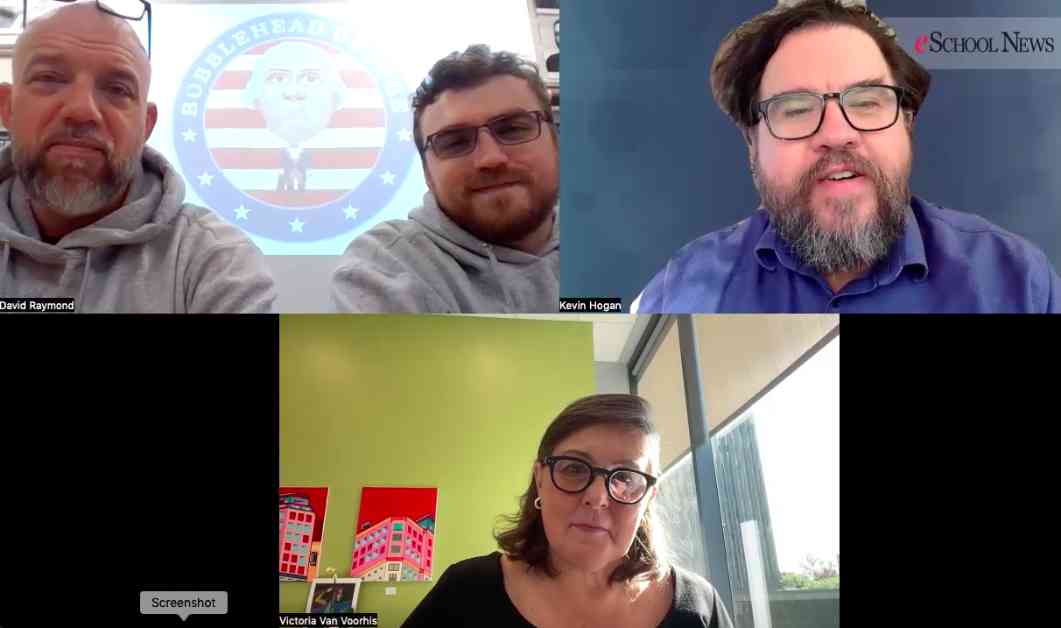In the midst of the 2024 presidential election, the challenge of navigating politics and media bias is not just limited to adults but also extends to educators guiding young students through the overwhelming amount of information available on social media platforms. In Pennsylvania, middle school teachers David Raymond and Eric Gimbi, along with Tory Van Voorhis, the creator of the non-partisan platform Election Edge, are taking on this challenge with enthusiasm and determination.
As part of the Bobblehead George geek squad, Raymond and Gimbi are using innovative techniques to engage eighth-grade students in discussions about the election. They understand the importance of teaching students how to critically analyze information and recognize bias in media outlets. By equipping students with these skills, they are empowering the next generation of voters to make informed decisions.
Tory Van Voorhis, the CEO of Second Avenue Learning, emphasizes the need for educators to address the 2024 election in the classroom. With the rise of fake news and misinformation, it is crucial for students to develop media literacy skills that will serve them well beyond the classroom. Van Voorhis’ Election Edge platform provides educators with data-driven resources to help students navigate the complexities of the political landscape.
As we look towards the future, it is clear that the role of educators in shaping informed and engaged citizens is more important than ever. By teaching students how to critically evaluate information and understand the influence of media bias, teachers like Raymond and Gimbi are preparing their students to participate meaningfully in the democratic process.
Kevin, a seasoned media executive with a passion for education technology, highlights the significance of addressing politics and media bias in the classroom. With over 25 years of experience in building brands and audiences, Kevin understands the power of education in shaping the future of society. By sharing valuable resources and insights, he encourages educators to take an active role in empowering students to navigate the complexities of the 2024 election.
In conclusion, the efforts of educators like David Raymond, Eric Gimbi, and Tory Van Voorhis are instrumental in preparing students to become informed and critical thinkers in today’s media landscape. By equipping students with the necessary skills to navigate politics and media bias, these educators are shaping the future of democracy one classroom at a time.


